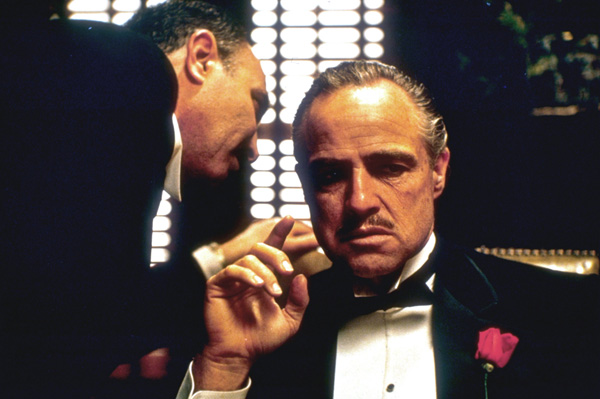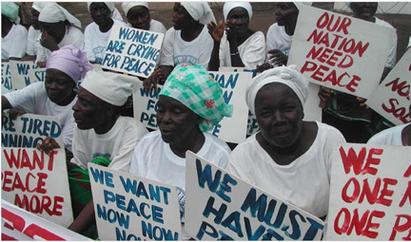The Woman Who Changed The Game
 The Arabs introduced the game of chess to Spain during the 8th century, but it wasn’t until 1495, when Isabella, Queen of Castille, reached the height of her powers, that the queen became the most powerful piece on the board. In real life, Isabella, the monarch who unified Spain and sent Christopher Columbus on an epochal voyage, was the most powerful person in all of Europe. Yet even still, to the people of Spain, King Ferdinand mattered most. Ferdinand was a figurehead, and although his wife eclipsed him in real power and influence — he served as a walking, breathing, symbol of Spanish sovereignty.
The Arabs introduced the game of chess to Spain during the 8th century, but it wasn’t until 1495, when Isabella, Queen of Castille, reached the height of her powers, that the queen became the most powerful piece on the board. In real life, Isabella, the monarch who unified Spain and sent Christopher Columbus on an epochal voyage, was the most powerful person in all of Europe. Yet even still, to the people of Spain, King Ferdinand mattered most. Ferdinand was a figurehead, and although his wife eclipsed him in real power and influence — he served as a walking, breathing, symbol of Spanish sovereignty.
For thousands of years, men have used patriarchy as a means of dominating the systems and institutions of civilization. They are often the figureheads of companies, movements and families, but like the king on the chessboard, this form of power has limits.
I am reminded of the late Fidel Castro who survived 634 assassination attempts. When the sovereignty of a kingdom rests on the welfare of a single person, that person, no matter how omnipotent, is a walking liability.
Masculine power is sustained by real structures– and anything real can be dismantled and destroyed. Fortresses, skyscrapers, rigid hierarchies, laws, armies and intimidating displays of force–all of these traditional signs of authority project an illusion of impenetrability, but quite the opposite is true. We read about the vulnerable nature of masculine power structures in news headlines each day, in stories about insurgents, corporate takeovers, and political upsets.
The paradox of masculine power is that the more impressive it is, the more vulnerable it becomes. Masculine power must constantly affirm itself in order to exist. It is always ‘doing’– performing, acquiring, coercing, and ultimately defending its viability. Perhaps this is the real reason power corrupts.
Masculine power is like the king on the chessboard, plodding along one square at a time, much like our conscious mind wanders from thought to thought and action to action. The game revolves around the king, but he is at the mercy of those who flank him. Alone, he is weak.
Chess reflects the real world.
“Feminine” vs. “Masculine” Power

In western society, traditional leadership is masculine in nature. It is rooted in our left hemispheric brain function, the hemisphere that biologists believe evolved during the Paleolithic to accommodate hunter/killer instinct in humans. Masculine power favors emotional objectivity, logic, convergent thinking, assertiveness, a willingness to kill— and by default, men. Big surprise, masculine power structures inherently favor men, and as such, in a patriarchal society–we define power in masculine terms.
Feminine power, by contrast, is a manifestation of our right hemispheric brain function, a neurodesign that first evolved to suit the critical gatherer/nurturer tasks of our earliest nomadic ancestors. Feminine values– intuition, emotionality, radical creativity, diffuse awareness, sensuality and nurturing–are typically relegated to the domestic sphere. These values are often viewed as the opposite of real power, and certainly overlooked as the necessary counterpart to ‘power’ in its masculine form.
In fact, some might even argue that the very term, “feminine power”, is an oxymoron.
(They would be wrong.)
Feminine power is invisible, overwhelming and virtually indestructible.
It exists in the seat of our subconscious. Like the queen on the chessboard, with the ability to move in any direction, feminine power is diffuse, arresting in ways that can neither be anticipated nor destroyed. Seduction, emotional persuasion, symbols and signs are all potent aspects of feminine power.
She Who Has the Ultimate Power
It is far easier to free the body than it is to free the mind.
Masculine power controls the body. Feminine power controls the subconscious mind. Masculine power takes. Feminine power never has to ask.
Masculine power reigns over the real,material world. It is power we can see and feel–and anything that is real can be destroyed. Feminine power is invisible and thus virtually indestructible.
You can burn a flag, but nothing can destroy the flags meaning. You can attack a place of worship, but you can’t dissolve the beliefs.
When I think about feminine power, I picture those women who can disarm their toughest opponents, or leverage their powerful networks to accomplish their goals. I think about those women who can fill a room with their presence, and get the answer ‘yes’ without ever asking a question.
I think about captivating brands that rouse our deepest feelings of identity, and the mesmerizing films that project our innermost dreams. I think about the lovers who make us feel like magic, the art the captures our breath, and the movements that motivate us to be the change. I think about how even the most masculine leaders pull the invisible strings of feminine power, employing charm and compelling image, to win their seats.
I think of women like Ellen Johnson Sirleaf and Leah Gbowee who lead the women of Liberia in the peaceful movement that helped bring an end to 14 years of a brutal civil war. They orchestrated the impossible by relying on feminine values of deep community and collaboration. They staged powerful silent protests– public spectacles that appealed to the senses. And yes, they even employed a sex strike.
These women exercised their authentic power in subversive ways and in doing so, accomplished what the male dominated society could not.
In a patriarchal society, it’s easy for a queen to aspire to move like a king, but perhaps you can see now, how unnecessary that is.
As partners, we make kings stronger. As mothers, we make kings.
And as sovereigns, we have the freedom to move, to explore, and to fill the world with our power, our presence and infinite creative potential. We are the necessary counterpart to power as we know it. The world needs our light.
Powerfully yours,
Ayesha
PS: What makes you powerful? Discover how you captivate with my unique, psychology backed 13 Feminine Seduction Archetypes Questionnaire.
The founder of Women Love Power®, Ayesha K. Faines is a writer, media personality, and brave new voice for feminine power and social change. Sought after for her provocative insights on culture, mythology and gender politics, she has been featured on MTV, Essence, Entertainment Tonight, The Michael Baisden Radio Show, AfroPunk, and Time among other media outlets. She’s traveled the world lecturing before a number of universities, and she pens a column for Zora Magazine that explores the intersection of love and power. She is best known as a featured panelist on “The Grapevine”. Ayesha is a graduate of Yale University and a former television journalist.
